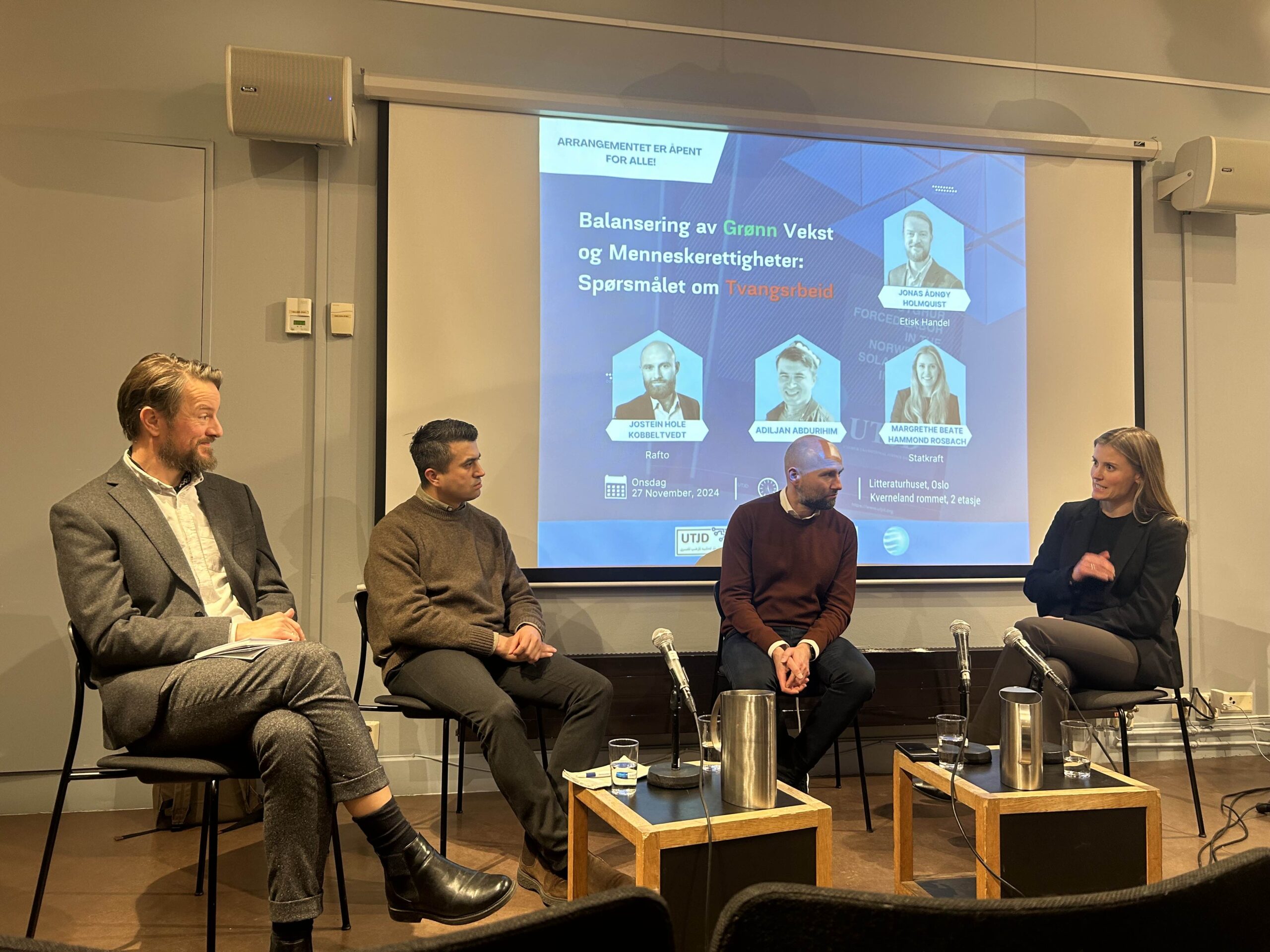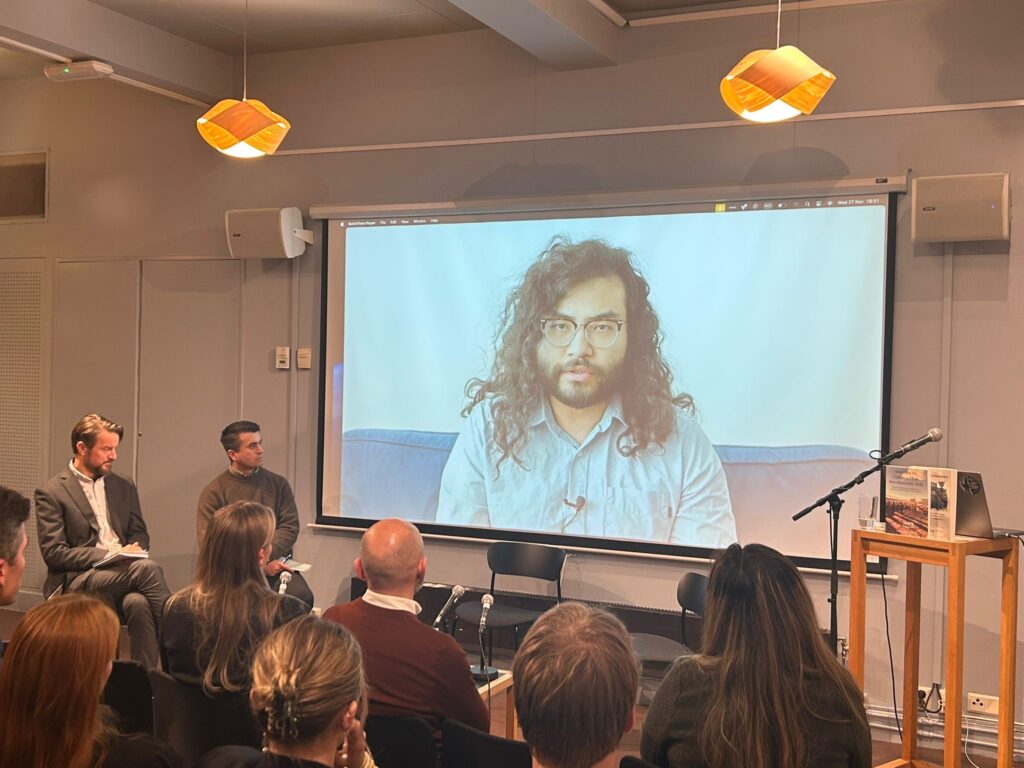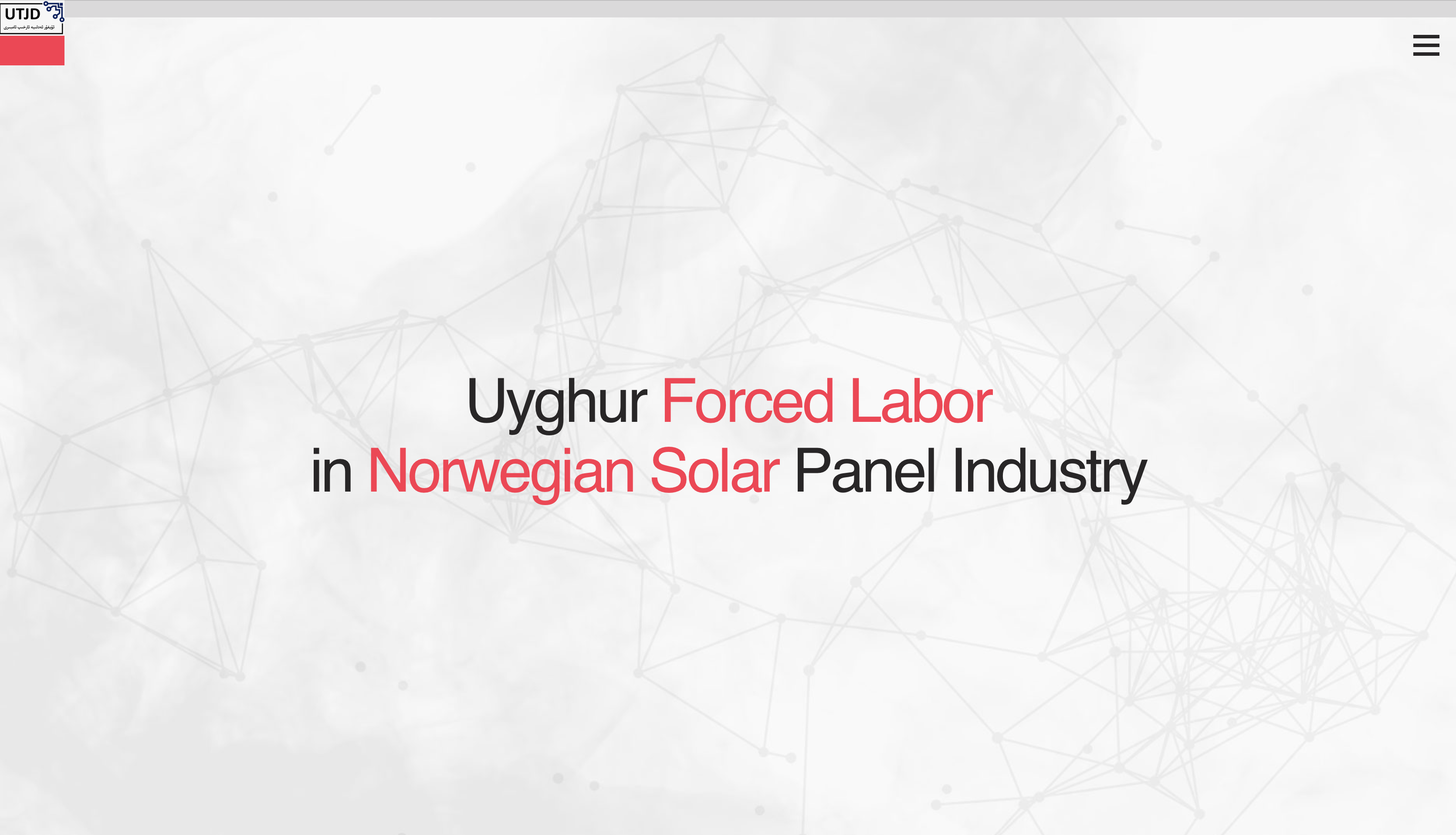The Uyghur Transitional Justice Database (UTJD), in cooperation with the Rafto Foundation for Human Rights, recently hosted a pivotal panel debate, “Balancing Green Growth and Human Rights: The Forced Labor Question.” This event aimed to tackle the critical issue of unethical labor practices, particularly the exploitation of Uyghurs, within the global supply chains that fuel the green energy transition. The debate brought together voices from human rights organizations, industry leaders, policymakers, and civil society.
The Tension Between Growth and Responsibility
Helchem Mamatimin, Executive Director of the Norwegian Uyghur Committee, opened the discussion with a speech. She highlighted the ethical dilemma at the heart of globalization: while it drives economic growth and innovation, it often comes at the cost of human rights. “Behind the clean energy transition lies a darker truth: the forced labor of marginalized communities, including the Uyghurs,” she stated. This issue underscores the urgent need to reconcile sustainability with ethical responsibility.

A Spotlight on Norway’s Transparency Act
The UTJD presented findings from its comprehensive report, Uyghur Forced Labor in the Norwegian Solar Industry, which evaluates how 25 Norwegian companies adhere to the Transparency Act. This legislation mandates companies to assess human rights risks in their supply chains, but the report revealed mixed results. While some progress has been made, significant gaps remain, particularly in addressing links to Uyghur forced labor in industries like solar energy.

Key Themes from the Panel Discussion
Moderated by Jonas Ådnøy Holmqvist of Etisk Handel Norge (Ethical Trade Norway), the panel brought together representatives from Statkraft, the Rafto Foundation for Human Rights, and the UTJD. Each participant shared their perspectives on tackling unethical trade practices in a complex global economy. Key themes included:
- Strengthening Legislative Frameworks: Panelists agreed on the need to enhance the Transparency Act to hold companies more accountable for labor practices in their supply chains. Clearer guidelines and stricter enforcement were emphasized as crucial steps.
- Industry and Civil Society Collaboration: The solar energy sector, a cornerstone of the green transition, faces scrutiny due to potential ties to forced labor. Participants discussed strategies for industry players to work closely with civil society organizations to identify risks and implement ethical practices.
- Education and Awareness: Bridging the gap between industry and human rights advocates requires broader dialogue and a shared understanding of the ethical and legal implications of forced labor.
- International Cooperation: Addressing these issues effectively demands collaboration not only within Norway but across borders, involving governments, international organizations, and trade networks.
A Call to Action
Babur Ilchi from End Uyghur Forced Labour Coalition set focus on current global situation of Uyghur Forced Labour in his closing remarks.

The panel concluded with a shared commitment to action. As it has been emphasized, the transition to a greener future must be rooted in justice. “Together, we can demand greater accountability, strengthen our laws, and prove that sustainability and human rights are not mutually exclusive,”
While the challenges are immense, the event underscored the potential for collective efforts to combat forced labor. By fostering dialogue, improving legislation, and forging partnerships across sectors, we can work toward a global economy that prioritizes both sustainability and human dignity.



